Research
The Centre for Cities and Communities acts as a nexus for the exchange of research, knowledge and best practices in city-building.
Communication and collaborative research across disciplines drive results and multiple perspectives mean we’re better equipped to respond to modern issues. That’s why we’re working with academic and industry partners to support the next generation of talented individuals, and in turn, communities and businesses around the world.
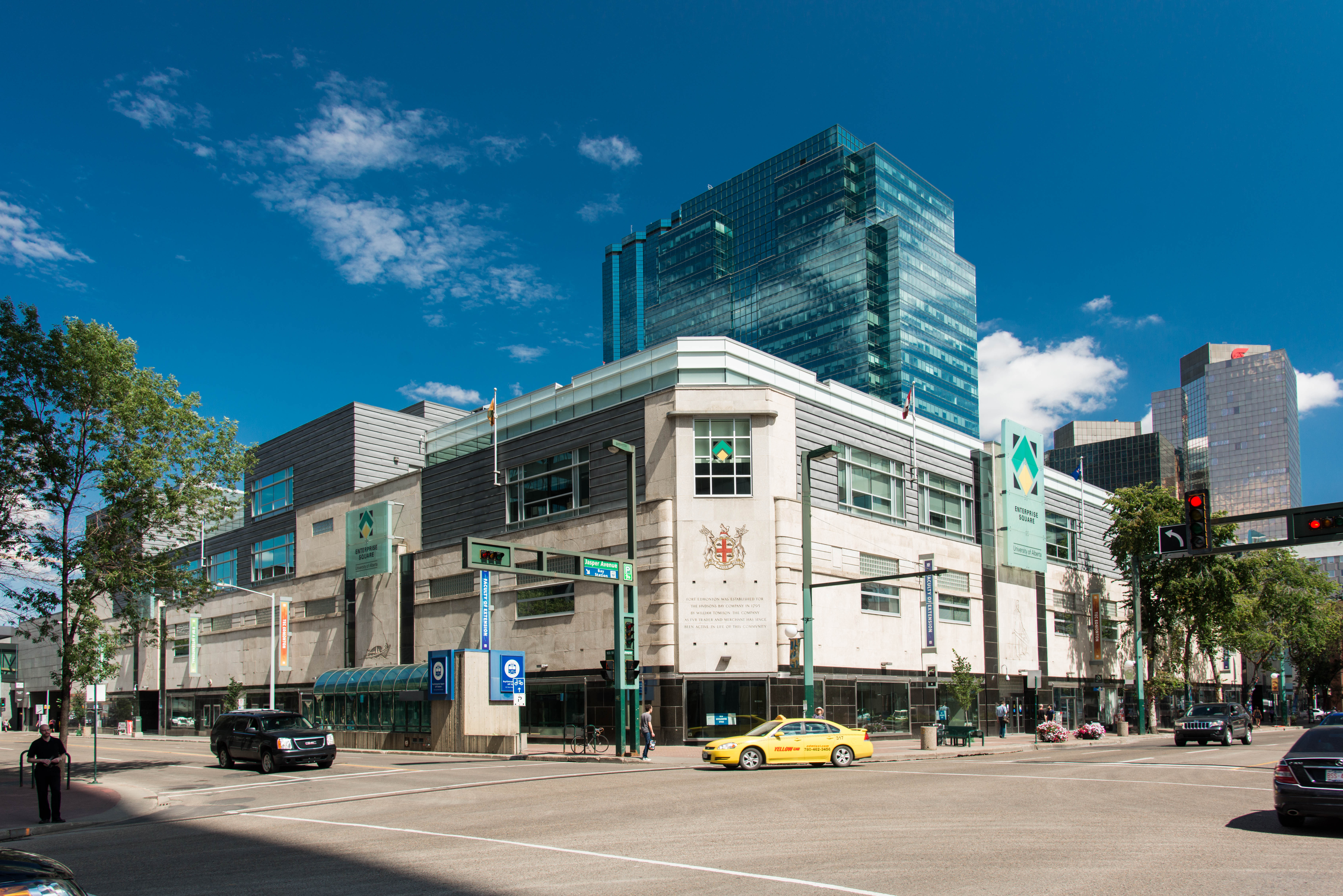
City-Building Researchers
From public health to property law, the range of disciplines that inform how we shape our communities is vast and varied. Here you will find our accomplished researchers working in these fields.
Jeff Birchall, PhD, RPP, MCIP
Associate Professor, Faculty of Science - Earth & Atmospheric Sciences
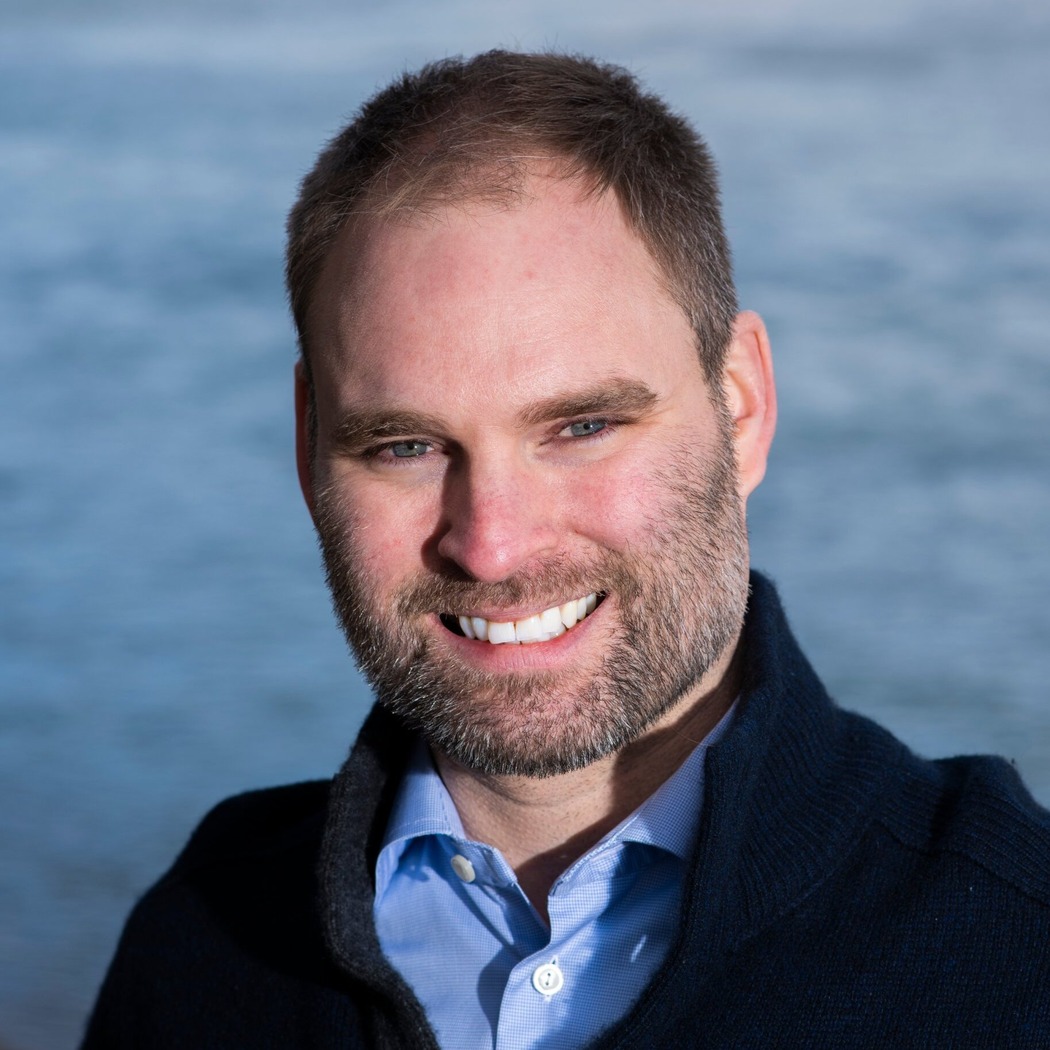
Dr. Jeff Birchall is an associate professor of Local-scale Climate Change Adaptation/Resilience in the School of Urban and Regional Planning (SURP) within the Department of Earth and Atmospheric Sciences at the University of Alberta. In addition to his academic role, he serves as the Associate Director of SURP and the Director of the Climate Adaptation and Resilience Lab. Dr. Birchall also leads the UArctic Thematic Network on Local-scale Planning, Climate Change, and Resilience. As a registered professional planner (RPP, MCIP), he brings extensive education in geography, environmental studies, planning, climate change and sustainability.
Dr. Birchall’s most recent research explores how perceptions of risk and responsibility can hinder adaptation to climate change.
Mustafa Gül, PhD, PEng
Professor, Faculty of Engineering
![]()
Dr. Mustafa Gül is a professor in the Department of Civil and Environmental Engineering at the University of Alberta. His current research focuses primarily on developing novel technologies for smart, sustainable and resilient cities and societies, with an emphasis on technologies for Crowdsensing-based Monitoring of Built and Natural Environments (CoMBiNE). Additionally, Dr. Gül investigates various topics, including the efficient integration of solar PV systems into energy-efficient buildings, as well as community-wide and city-wide solar PV applications. He has led more than 25 large-scale research projects in the infrastructure and energy areas, funded by various federal and provincial organizations and industry partners. Dr. Gül has published over 90 journal papers and 100 conference papers in the areas of infrastructure and energy.
Dr. Mustafa Gül received his BSc and MSc in Civil Engineering from Boğaziçi University in Turkey in 2002 and 2004, respectively. He then pursued doctoral studies at the University of Central Florida (UCF), earning his PhD in Civil Engineering in 2009 with a focus on monitoring civil infrastructure systems. During his postdoctoral research, he obtained an MSc degree in Electrical Engineering at UCF in 2011, concentrating on image/signal processing and Artificial Intelligence.
Eran Kaplinsky, SJD, LLM
Professor, Faculty of Law
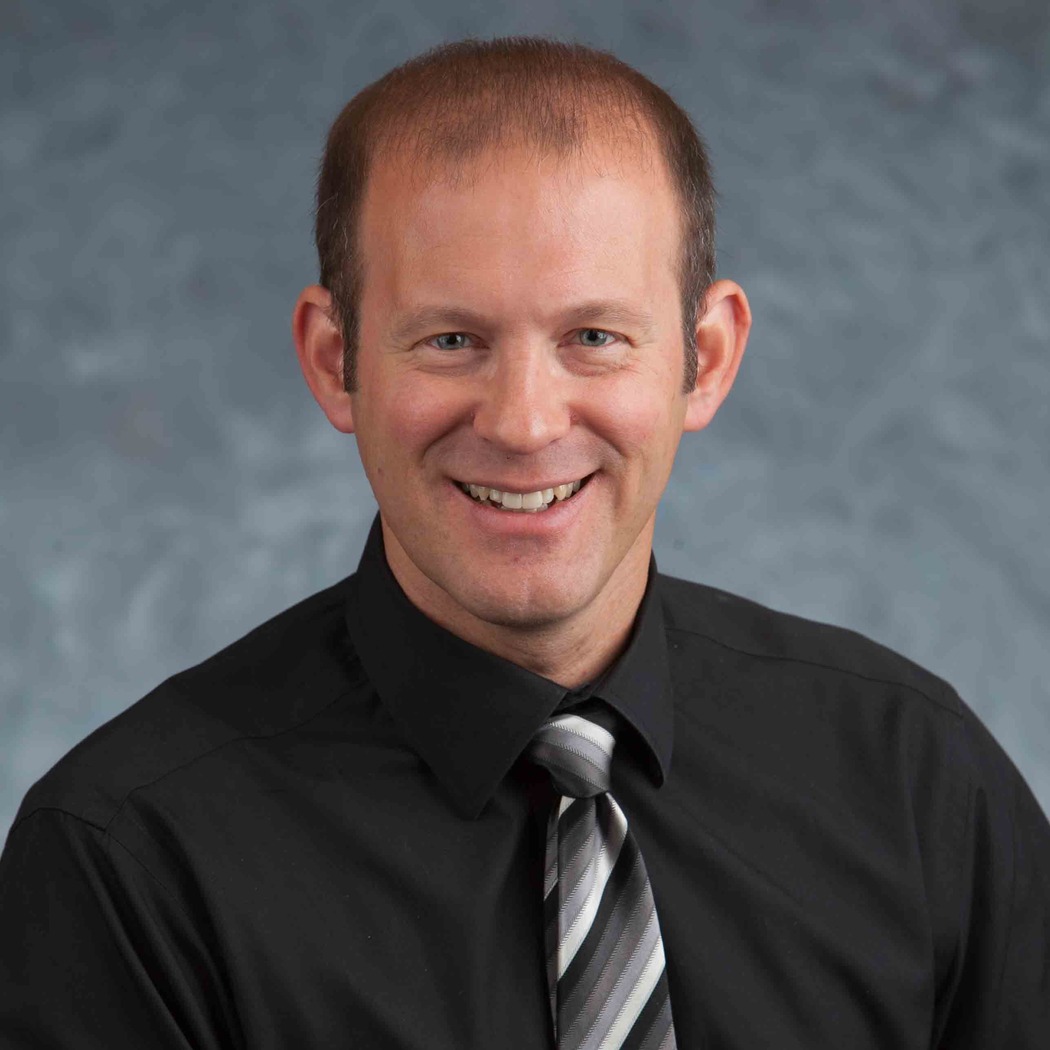
Professor Eran Kaplinsky researches and teaches in the areas of property law and planning law. He is the co-author of Ziff's Principles of Property Law (8th ed.). He holds a Bachelor of Laws from Tel Aviv University, a Master of Laws from the University of Toronto and a Doctor of Juridical Science from the University of Toronto.
Professor Kaplinsky was previously a visiting scholar and adjunct professor at the University of Toronto, an instructor at the Ryerson University School of Urban and Regional Planning and a Visiting Professor at the Université de Sherbrooke. He was also an attorney in Tel Aviv in the areas of municipal law, medical malpractice and commercial litigation.
Professor Kaplinsky served as research director of the University's Alberta Land Institute from 2016 to 2023.
Karim El-Basyouny, PhD, PEng
Professor & Associate Dean (Research & Infrastructure), Faculty of Engineering
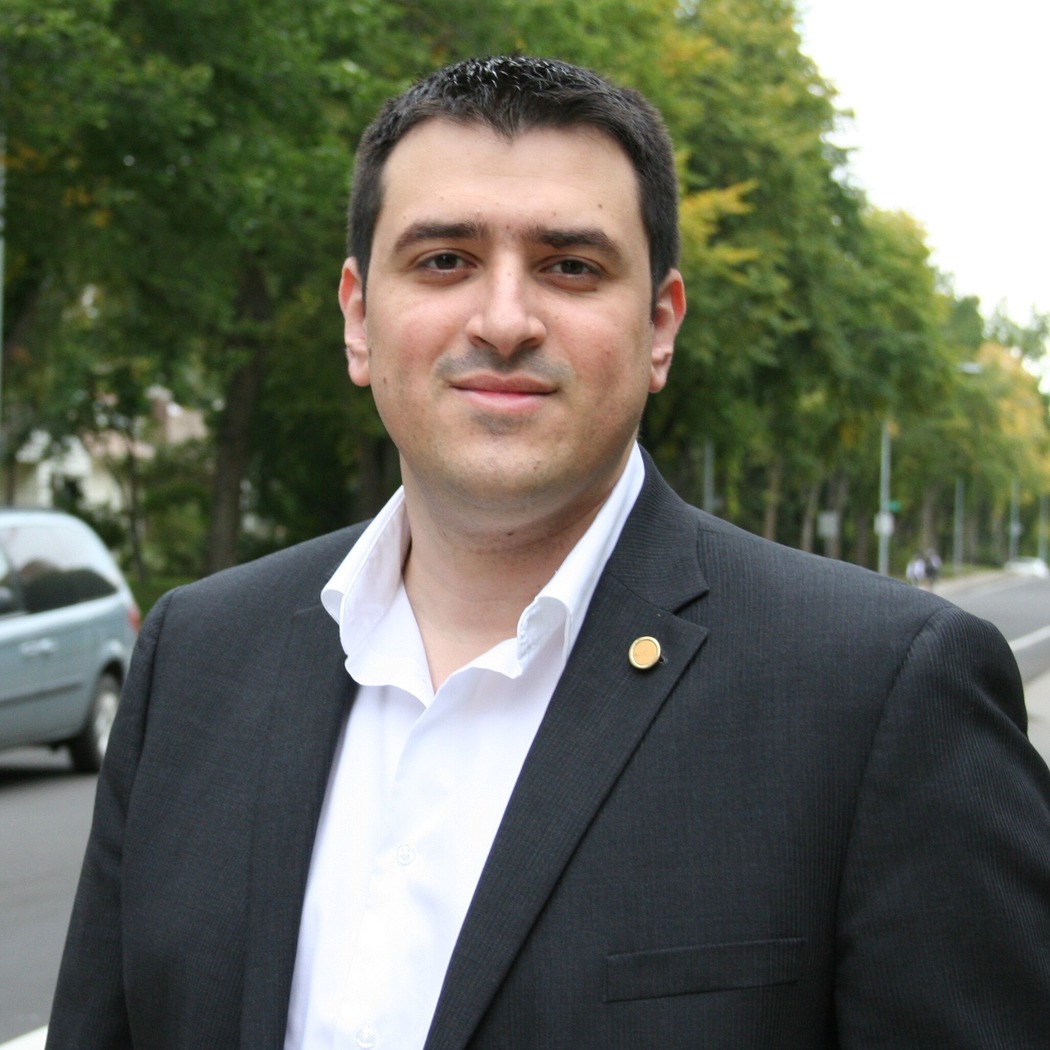
Dr. Karim El-Basyouny is a professor and holds an endowed chair position in urban traffic safety at the University of Alberta. He is a licensed professional engineer in the province of Alberta and holds MASc and PhD degrees in Transportation Engineering from the University of British Columbia. Dr. El-Basyouny is passionate about all things safety and continues to dedicate his research and professional career to furthering our understanding of increasing safety and improving mobility for all road users. For the past decade, Dr. El-Basyouny’s research on speed and safety management has been informing public policy and practice. To him, safety is a product just like any other good or service, and through his research, he advocates for the creation of a management framework which produces a safe system. His goal is to agitate the discussion on important and often neglected issues to achieve a system that is free of death and disability. Dr. El-Basyouny is an active member of multiple safety committees and serves on the editorial boards of several prominent journals. He is a co-founder and steering committee member for the Centre of Smart Transportation. He also serves as the associate dean for Research in the Faculty of Engineering.
Damian Collins, PhD
Professor, Faculty of Science - Earth & Atmospheric Sciences
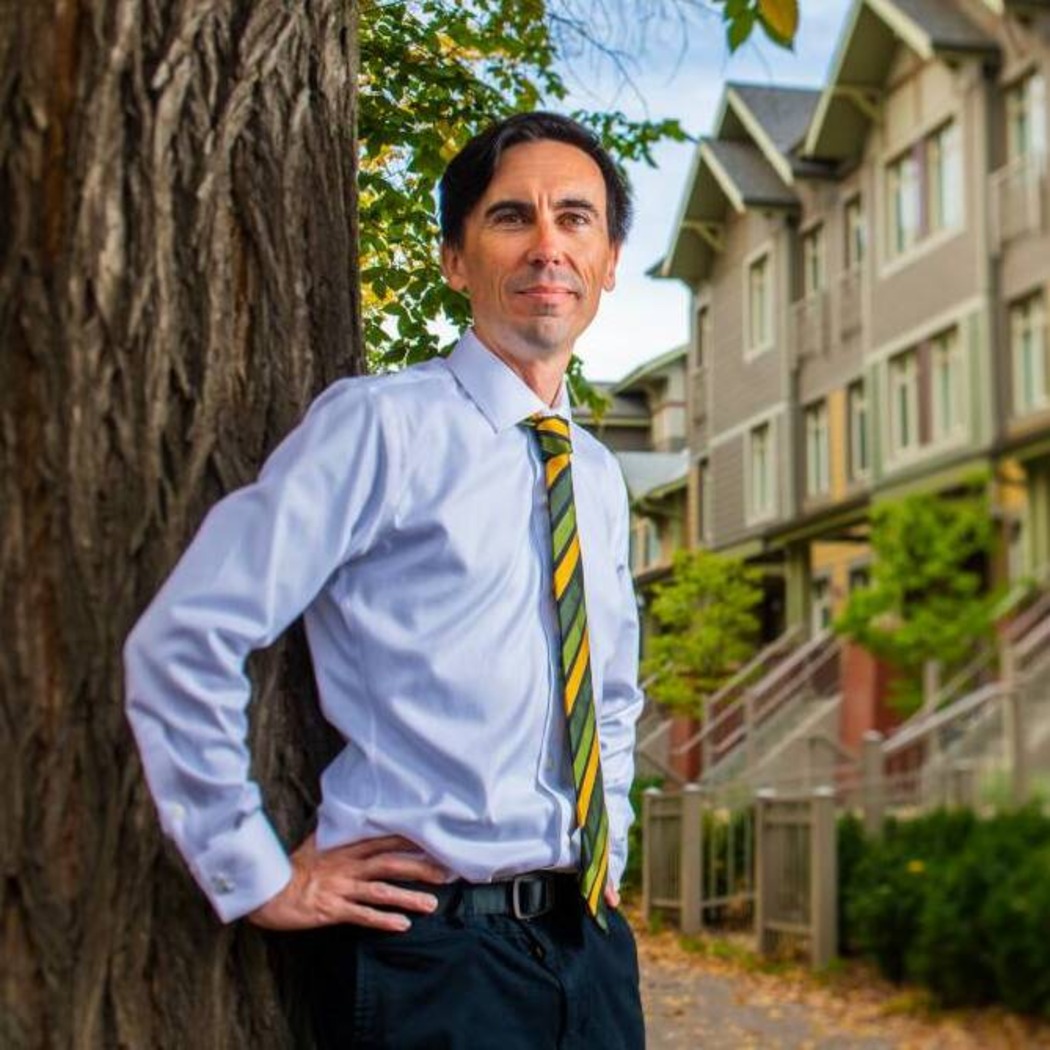
Dr. Damian Collins’ work as a human geographer explores the public aspects of contemporary social life - specifically public policies, public services and public spaces. He seeks to understand why these "public things" are important, and why we collectively devote so much effort to debating them. These debates occur at all scales, from informal conversations through to major constitutional challenges.
Rights claims often play a critical role in shaping public policies, public services and public spaces. Dr. Collins explores the way in which rights are influential in shaping "who gets what, where, and how" (Smith D.M., 1974). The right to housing is of central importance in his current SSHRC-funded research.
At a more applied level, Dr. Collins is dedicated to identifying and understanding how public policies, public services and public spaces can support human health and well-being. He believes that health is a resource for everyday living, and everyone has the right to attain it.
Dr. Collins is the Director of the Community Housing Canada Research Partnership, which sits within the Collaborative Housing Research Network.
Gaang Lee, PhD
Assistant Professor, Faculty of Engineering
![]()
Gaang Lee is an assistant professor in the Department of Civil and Environmental Engineering at the University of Alberta. He earned his PhD from the University of Michigan and MSc. and BE from Yonsei University in South Korea. Prior to his academic career, he worked at an engineering and construction company for four and a half years as a BIM coordinator, site engineer and corporate strategy manager.
His research focuses on making cities, buildings, parks and workplaces more empathetic to users and workers, creating safer, healthier, more productive and comfortable surroundings. Dr. Lee integrates wearable biosensing, deep learning, adaptive signal processing, and statistical GIS techniques with psychophysiological and socio-cognitive theories in his research.
Robert Summers, PhD, MA, BA, MCIP, RPP
Director - School of Urban and Regional Planning, Faculty of Science - Earth & Atmospheric Sciences
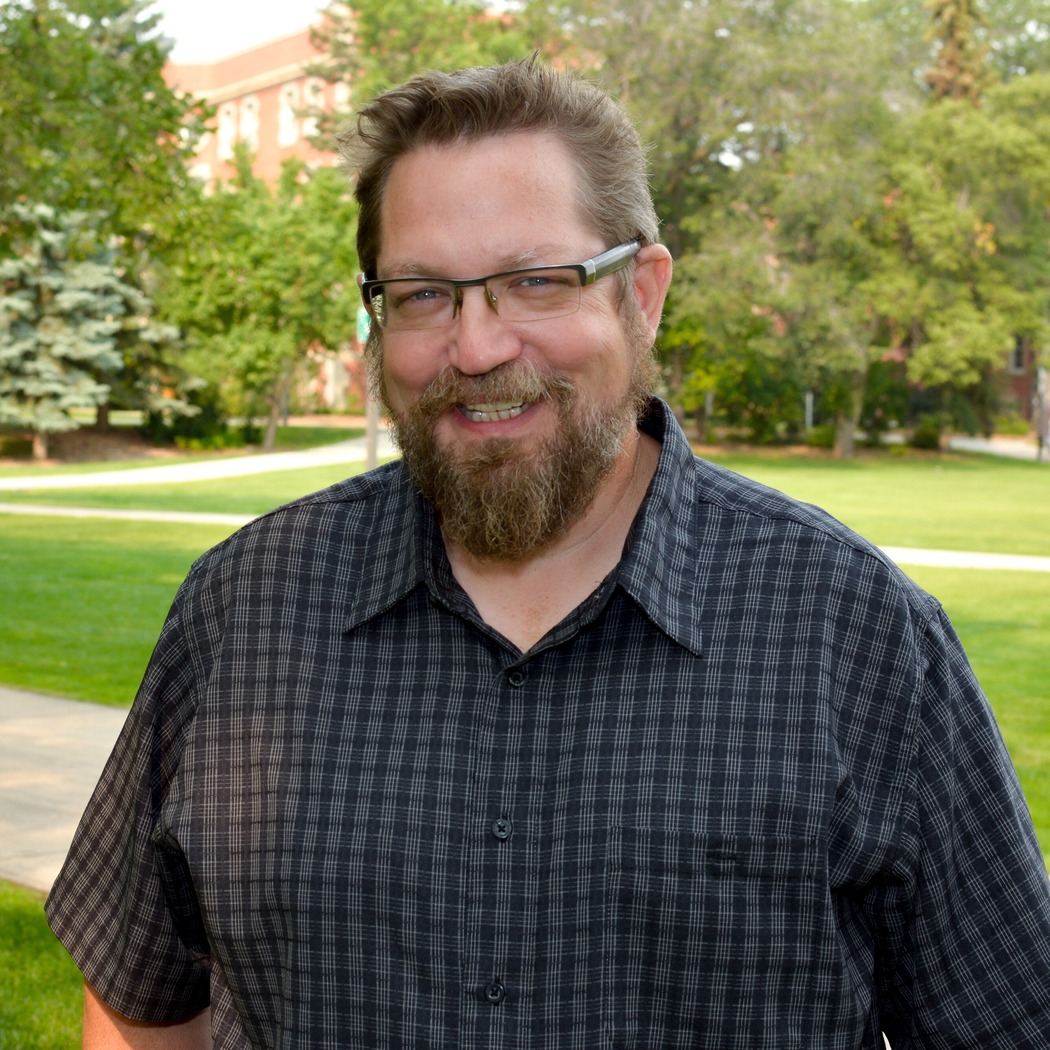
Dr. Robert Summers serves as the director of the School of Urban and Regional Planning within the Faculty of Science at the University of Alberta. Additionally, he holds the position of academic director of the Sustainability Council, a group dedicated to providing students with courses and experiential learning opportunities leading to meaningful careers in sustainability. His research primarily focuses on four key areas:
- Collective Action and Cultural Institutions and their Evolution
- Environmental Governance/Policy (focused on behaviour and institutions),
- Rural Water Supply Issues in Canada and Sub-Saharan Africa,
- Community Development (social capital, sense of place, effectiveness and efficiency of local institutions) in both developed and developing world applications.
Candace Nykiforuk, PhD, CE
Director, Centre for Healthy Communities and Professor, School of Public Health
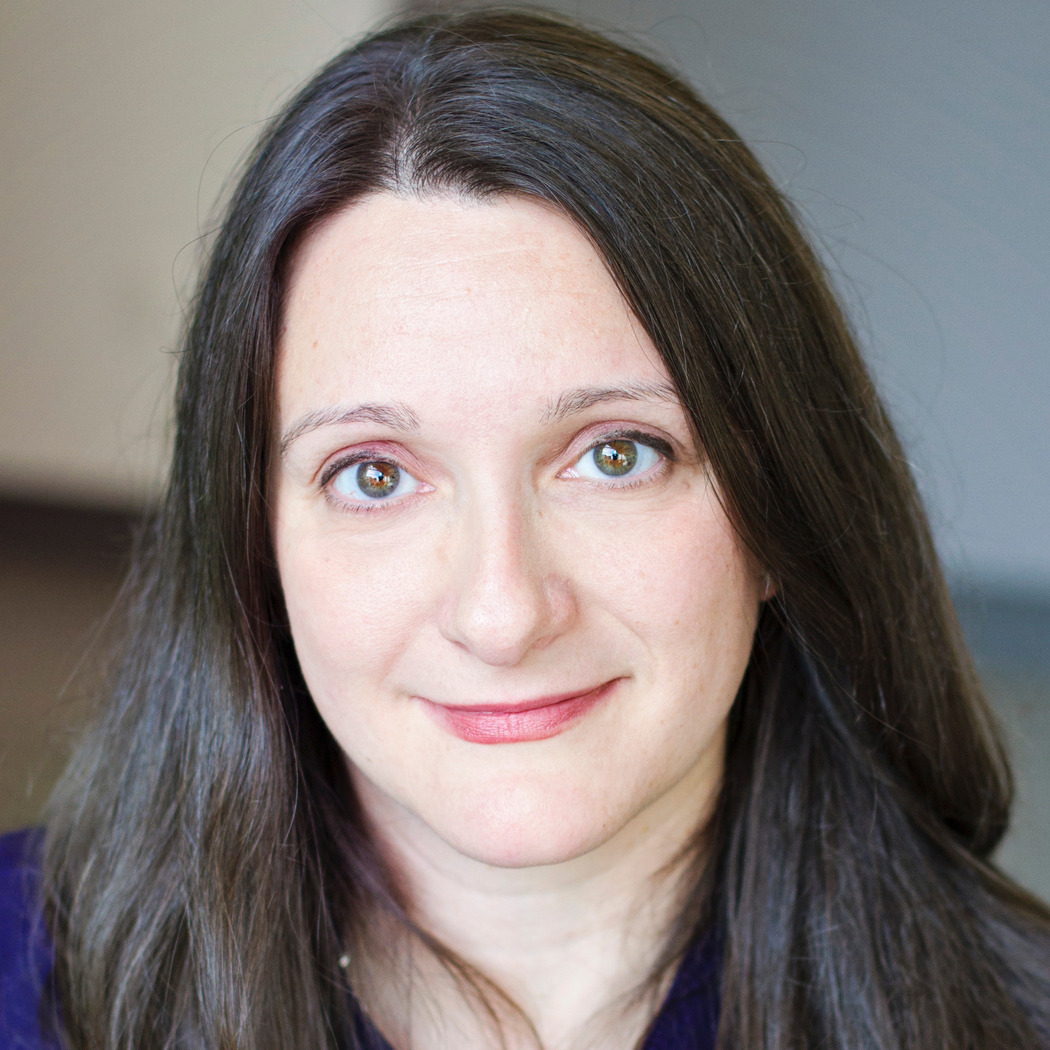
Dr. Candace Nykiforuk is a professor in the School of Public Health at the University of Alberta and a recently appointed applied public health chair (supported by the Canadian Institutes of Health Research in partnership with the Public Health Agency of Canada and Alberta Innovates - Health Solutions). Her work is dedicated to advancing the fields of population health intervention and health equity.
As a health geographer and health promotion researcher, Dr. Nykiforuk has a keen interest in the role of community (built and social) environments and public policies in health and well-being. Her research is grounded in social-ecological frameworks, critical social science and community-based participatory research perspectives. Employing mixed-methods, her studies incorporate both quantitative and qualitative techniques, with an emphasis on the use of geographic information systems (GIS) for mapping and spatial analysis.
Being an applied researcher, Dr. Nykiforuk places equal importance on community impact as on scholarly impact. Most of her research is conducted in collaboration with practitioners and decision-makers in the communities or other settings she engages with. The community partners actively contribute to defining research questions and implementing projects in meaningful ways, addressing issues relevant to their daily practice.
Dr. Nykiforuk is the principal investigator of the Policy, Location and Access in Community Environments (PLACE) Research Lab. She also serves as the founding and scientific director for the Centre for Healthy Communities, School of Public Health.
Joshua Evans, PhD
Assistant Professor, Faculty of Science - Earth & Atmospheric Sciences
![]()
Dr. Joshua Evans is a human geographer broadly interested in geographies of marginalization. Dr. Evans approaches his work from the vantage point of three interrelated themes: space, knowledge and power. To conceptualize these themes and how they relate, he draws upon a variety of theoretical frameworks including governmentality theory, actor-network theory and assemblage theory.
Dr. Evans utilizes various methodological approaches and techniques in his work including discourse analysis, in-depth interviewing, participant observation, arts-based inquiry and participatory action research.
His work delves into two main areas: (a) the examination of spaces of care, home, and work and their impact on the lived experiences of socially marginalized and vulnerable individuals, and (b) the investigation of spaces related to policy development and implementation, focusing on their role in creating healthy, enabling, and equitable urban environments.
To see what Dr. Evans is working on currently, check out his Google Scholar profile or his project website.
Karen K. Lee, MD, MHSc, FRCPC
Associate Professor, Faculty of Medicine & Dentistry
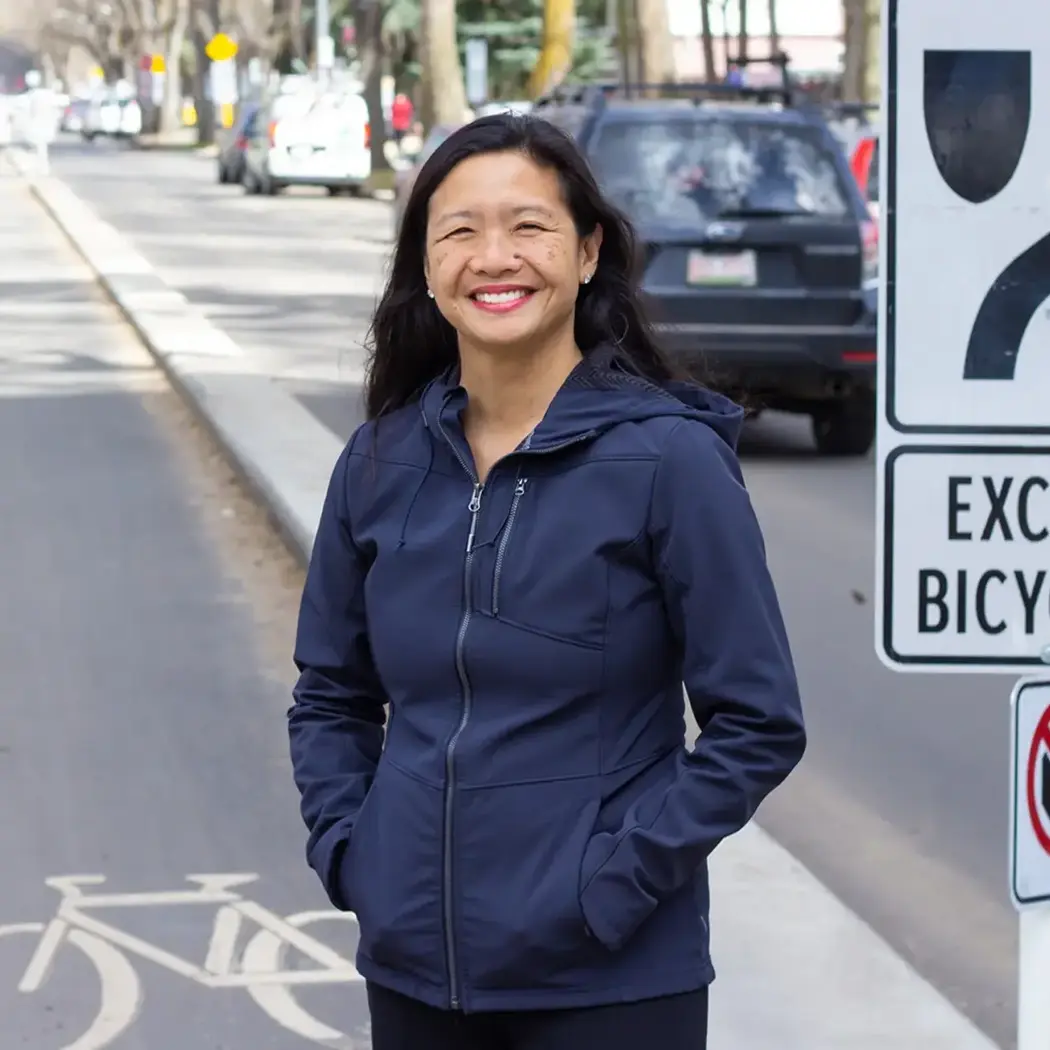
Dr. Karen Lee is a medical officer of health (Provincial Public and Population Health) with Alberta Health Services and an associate professor in the Division of Preventive Medicine at the University of Alberta. She also teaches for the University of Alberta School of Urban & Regional Planning, and Columbia University’s Mailman School of Public Health in New York City (NYC).
Dr. Lee is a world-renowned expert in creating Fit Cities and served as NYC’s Inaugural Healthy Built Environment and active design director, and deputy to the assistant commissioner for Chronic Disease Prevention and Control. She has worked for the Epidemic Intelligence Service at the US Centers for Disease Control and Prevention (CDC) in the Division of Nutrition, Physical Activity & Obesity. Her work to create 'Active Cities: A Guide for City Leaders,' played a significant role in inspiring Edmonton’s Live Active Strategy. She was the recipient of the 2017 Canadian Institute of Planners President’s Award. She is the author of the recent book Fit Cities published by Penguin Random House.
Amy Kim, PhD.
Adjunct Professor, Faculty of Engineering
![]()
Dr. Amy Kim joined the Department of Civil and Environmental Engineering at the University of Alberta in 2011. She received her PhD degree from the University of California, Berkeley in 2011. Prior to her doctoral studies, she worked in the transportation engineering and planning industry both in the US. and Canada. Her research interests are in transportation systems analysis, transportation systems design and management concepts, urban and interurban multi-modal systems planning, air transportation and transportation economics.
Tae J. Kwon, Ph.D., P.Eng.
Associate Professor, Faculty of Engineering
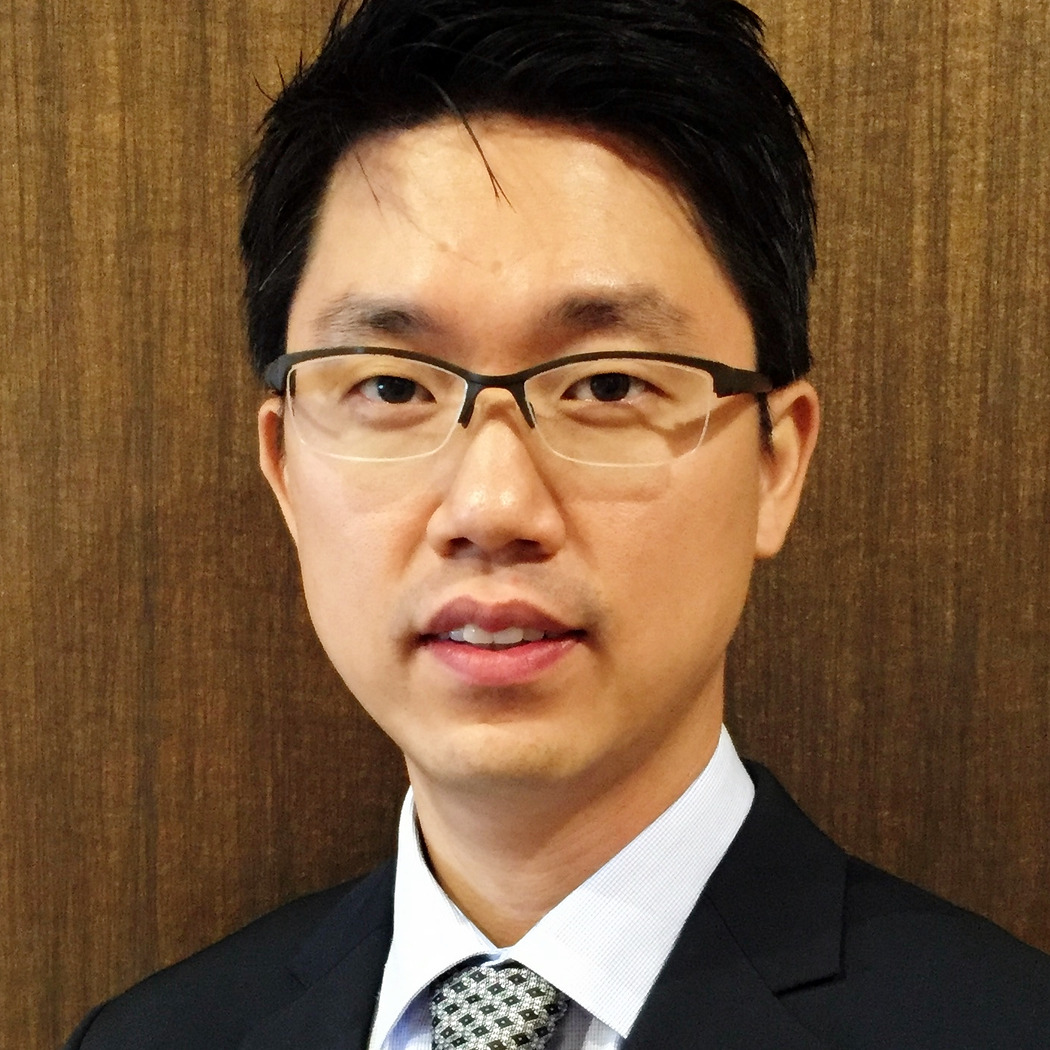
Dr. Tae J. Kwon joined the Department of Civil and Environmental Engineering at the University of Alberta in 2016, following the completion of his award-winning PhD at the University of Waterloo. Dr. Kwon's research spans a diverse range of topics, including intelligent transportation systems, winter road maintenance, facility location optimization, geospatial information sciences, remote sensing and traffic safety. In one of his recent multi-phase projects, he focuses on analyzing various winter transportation-related issues, employing heuristics and deep learning for road surface conditions monitoring and prediction. This work aims to enhance safety and mobility for winter travelers and involves collaboration with numerous transportation agencies across North America.
Throughout his tenure at the UofA, Dr. Kwon garnered numerous accolades for his outstanding achievements and contributions. In 2019, he was awarded with the Great Supervisor Award from the Faculty of Graduate Studies and Research (FGSR) for his exemplary supervisory efforts. The following year, he was recognized as the sole recipient of the U of A's Faculty of Engineering Early-Career Research Award, recognizing his research excellence and significant influence at both national and international levels.
Dr. Kwon's research has received support from various organizations, including federal, provincial, municipal and private industry sponsors. Notable entities include the NSERC Discovery Grant/Alliance Grant, Aurora Program, Alberta Transportation, Alberta EcoTrust, Iowa DOT, Maine DOT, City of Edmonton, Vanasse Hangen Bruslin Inc., CIMA+ and others. Additionally, Dr. Kwon has developed several web-based decision support systems, such as LoRWIS, which optimizes road weather sensor locations and is now utilized by numerous jurisdictions across Canada and the United States.
Sandeep Agrawal, PhD, MCIP, RPP, AICP
Professor, Earth and Atmospheric Sciences and Associate Dean, Faculty of Graduate Studies & Research
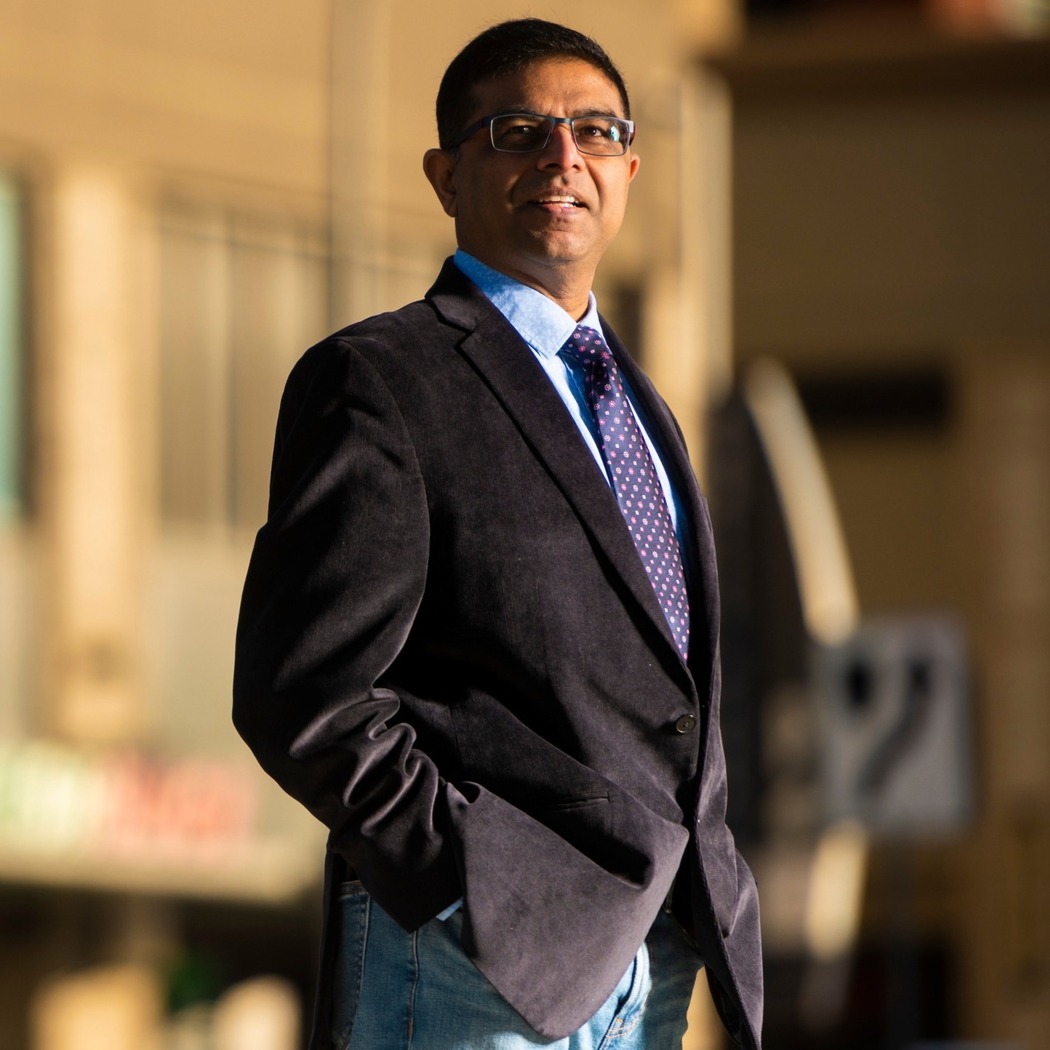
Dr. Sandeep Agrawal is a professor in the Department of Earth and Atmospheric Sciences. From 2013 to 2023, he served as an associate chair in the department and was the inaugural director of the School of Urban and Regional Planning. During his tenure as director, he played a pivotal role in the development of the MSc Planning and the PhD specialization in urban planning, establishing the School in 2018. Before joining the University of Alberta, he held the positions of associate director and founding graduate program director at the School of Urban and Regional Planning at Toronto Metropolitan University (formerly Ryerson).
Dr. Agrawal's diverse research interests encompass sustainable urban and rural planning, energy transition, Indigenous issues, and human rights. He has secured several national and international grants, including SSHRC, CFREF and others. Notably, he is the project lead for a recent $98.6M CFREF grant at the University of Alberta. With over a hundred articles, professional reports and three books to his name, Dr. Agrawal's contributions have influenced planning practice, impacted city bylaws and shaped planning policies and legislation, always with a focus on human rights and equity. His most recent book, entitled Rights and the City: Problems, Progress and Practice, reflects his commitment to these principles. Additionally, his upcoming book, Municipal Boundary Battles, will be published soon.
In recognition of his significant contribution to planning education and research in the country, Dr. Agrawal is a recipient of the Canadian Institute of Planners’ national academic award.
Susan Chatwood, BScN, MSc, PhD
Professor and Associate Dean (Education), School of Public Health
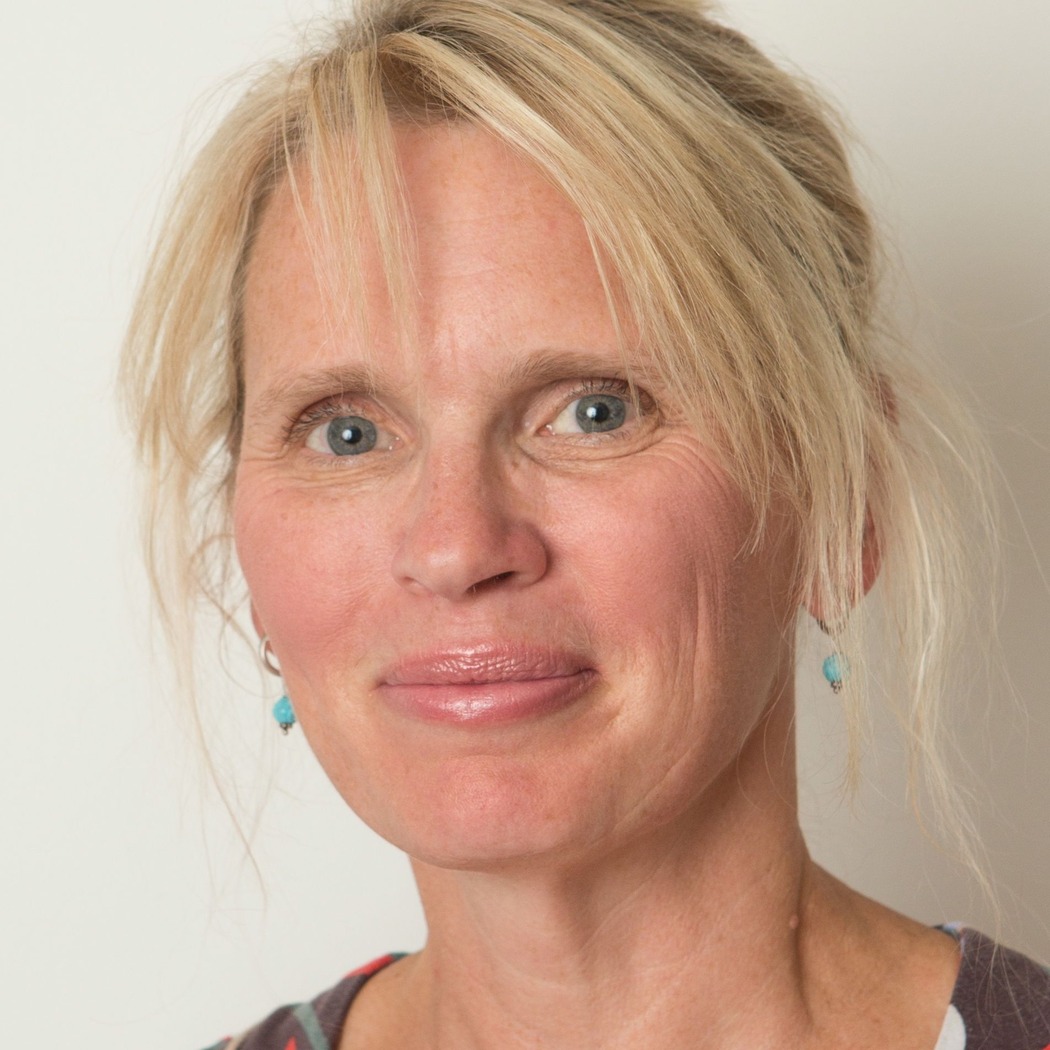
Dr. Susan Chatwood spent most of her career in remote and northern communities, working in the clinical setting, public health and research. Her work aims to build capacity for research in the Arctic and promote partnerships and methodologies that respect multiple ways of knowing. She also focuses on health systems research frameworks that address inequities and include related systems that drive the determinants of health in the Arctic. These determinants include climate change, Indigenous values and geographical challenges. She was awarded the McCalla Professorship to support innovation in curriculum development and teaching. She is fortunate to work with Elders and Indigenous Adjunct Professors as they develop and implement the Indigenous curriculum in the School of Public Health.
Dr. Chatwood is a council member of the National Sciences and Engineering Research Council (NSERC), she sits on the UAlberta General Faculties Council and co-chairs the Mamaweh a towskiwin Indigenous Working Group. She is an executive member and commissioner for the Lancet Commission on the Arctic: Urgently Accelerating Indigenous Health and Wellbeing. Her contributions to northern research were recognized through the Governor General's Polar Medal Award.